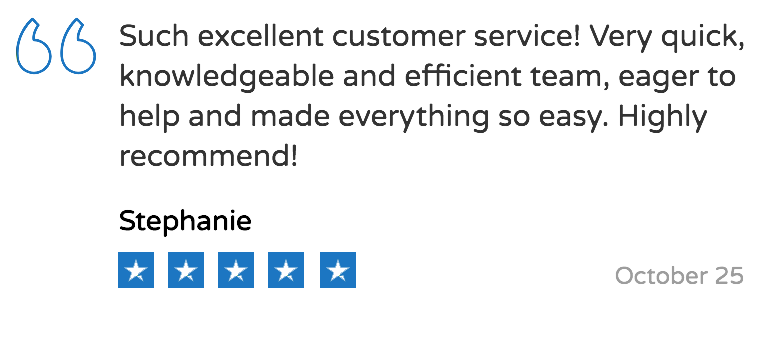Your
6+ Years Acing Homework | 350k+ Happy Students
- Homework
- Assignment
- Quiz
- Test
- Proctored Exam
- Essay
- Project
- Full Online Class
Get Homework Help on These Platforms
We have extensive experience doing homework for students on these online platforms boosting your grades
- Canvas
- Backboard
- Pearson MyLab
- MyMathLab
- MathXL
- WebAssign
- MyOpenMath
- ConnectMath
- HawkesLearning
- Connect
- Aleks
- D2L (Desire2Learn)
- Cengage
- Moodle
- WileyPlus
- MacGraw-Hill
- Straighterline.Com
- Sophia.Org
- Study.Com
- Many Others
Can I Refuse a Work Assignment? Navigating Professional Limits
Ever found yourself staring at a work assignment that just doesn’t sit right with you? You’re not alone. There are times when saying no to a task at work is not only necessary but could be the smartest move for your career. Understanding when and how to refuse a work assignment can empower you to manage your workload and protect your professional integrity.
But how do you do it without risking your job or reputation? It’s a tightrope walk, but with the right approach, you can navigate these tricky situations. Whether it’s due to ethical concerns, unrealistic deadlines, or a mismatch with your skills, you’ve got options. Let’s jump into the nuances of declining work assignments and how to do it professionally.
Hire an expert assignment writer for all your writing assignment tasks
Reasons to Consider Refusing a Work Assignment
Sometimes the work that lands on your desk may seem like it’s outside the bounds of what you signed up for. Recognizing when to put your foot down is crucial for maintaining a positive work-life balance. Let’s consider a few scenarios where saying no might be the best step forward.
First and foremost, assess whether the task at hand aligns with your core values and professional ethics. You’re in the driver’s seat when it comes to steering your career in a direction you’re comfortable with. If an assignment clashes with your personal principles, it’s worth considering a polite decline.

Navigating work decisions smartly.
Picture this: you’re already juggling a multitude of tasks, and your desk is buried under a towering pile of responsibilities. Here are some bullet points on when it might be necessary to refuse an assignment:
- The project requires skills beyond your expertise.
- It interferes with previously established priorities.
- The deadline is unrealistic given your current workload.
How Do I Get My Assignment Done? Tips & Strategies
Next, think about the long-term impact. Will taking on this assignment hinder your growth or opportunities within the company? It’s a smart move to measure the pros and cons. If an assignment doesn’t fit your career trajectory, it might not deserve a spot on your to-do list.
Let’s consider the resources available to you. If you’re already maxed out and the necessary support isn’t available, why set yourself up for a struggle? It’s not just about what’s on your plate now, but also about what’s coming around the corner.
Evaluating the Assignment
Before you decide, ask yourself these questions:
- Does the assignment serve a strategic purpose in my role?
- Am I the right person for this job, or is there someone else whose skills are a better fit?
- Have I got the bandwidth to complete this without sacrificing quality?
Reflecting on these points can help you make a decision that’s both informed and empowering.
What Is the 20-Minute Rule for Homework? Maximize Study Efficiency
Keep Communication Open
When you decide to refuse a task, do so with clear communication. Discuss your reasons candidly but professionally with your manager. Approach the conversation with the intent to find a solution, whether it’s delegating the task, renegotiating deadlines, or perhaps compromising on certain aspects of the project to make it more manageable.
Assessing the Impact on Your Career
When you’re faced with a work assignment that doesn’t feel right, it’s crucial to consider how your decision to accept or refuse it could shape your career trajectory. To make an informed choice, evaluate the consequences from a long-term perspective.
Start by imagining where you see yourself in the next few years. Does taking on this assignment propel you towards your career goals, or could it sidetrack your progress? You’ll want to weigh the pros and cons carefully:
- Ask yourself if the skills and experience gained from this assignment will enhance your resume.
- Determine whether the assignment could lead to networking opportunities with key players in your field.
- Consider if the assignment might open doors to future promotions or desirable projects.
Also, it’s essential to think about how your decision will be perceived by others in your workplace. Not every assignment is crucial for your growth, but regularly refusing tasks without a strong rationale may cast shadows of doubt on your commitment or flexibility. Here are key factors to consider:
- Will declining impact your relationships with colleagues or management?
- Could refusing be seen as a lack of team spirit or cooperation?
- Might there be a middle ground where you can contribute without overcommitting?
If you’re unsure about the potential outcomes of your decision, seek advice from a mentor or trusted peer. Their insights can help you anticipate the ripple effects your choice might create across your professional network.
Remember, you’ve got the power to shape your career path. Every assignment is a stepping stone, each with its own set of risks and rewards. Make sure you’re moving forward in a direction that aligns with your ultimate ambitions and values.
The Right Way to Approach Refusing a Work Assignment
When the moment comes where a task at hand doesn’t sit right with you, it’s crucial to know the steps to handle the situation tactfully. Refusing an assignment can be a smooth process if approached with consideration and professionalism.
First, you’ll want to understand why you’re inclined to refuse the assignment. Are your reasons grounded and reasonable? Pinpoint the core issue at hand—be it a mismatch of skills, a conflict with your values, or an overstretched workload. Articulating your stance clearly is paramount.
Next, consider these ordered steps:
- Schedule a private conversation with your manager or supervisor.
- Prepare a clear explanation in advance.
- Offer alternative solutions when possible.
- End the discussion with a reaffirmation of your commitment to your role.
Remember, maintaining open lines of communication ensures that you’re heard and that your concerns are taken seriously. Your goal isn’t to simply say no but to collaborate and find a mutually beneficial resolution.
Include these elements in your conversation:
- Your understanding of the task’s importance
- An honest assessment of your current workload
- Your willingness to support other aspects of the project or team
By presenting your stance with a solutions-oriented mindset, you’re demonstrating both responsibility and foresight. Your approach should be aimed at preserving your professional relationships while safeguarding your personal well-being and productivity.
Above all, it’s about being direct yet diplomatic. Be respectful of your manager’s perspective while staying true to your professional limits. You’ve got the power to shape your workload effectively, ensuring that every assignment you take is a step forward in your career growth.
Let your rationale and your proposed solutions showcase your commitment to the company’s success, as well as your own.
Effective Communication Strategies
When you’re faced with the need to refuse a work assignment, effective communication is your key ally. It’s about balancing honesty with tactfulness while keeping your professional relationships intact. Let’s break down strategic approaches to ensure your message is well received and your professional integrity remains unblemished.
First, consider preparing your thoughts. When you schedule that private conversation with your manager:
- Start by expressing gratitude for the opportunity.
- Clearly state the reason why the task is not a good fit for you.
- Be concise yet detailed in your explanation.
Within this dialogue, it’s important to anchor your conversation in positive language. For instance, say that you’re eager to focus on tasks that will leverage your strengths, which in turn will benefit the team and the project’s success.
Engaging with your manager should also involve active listening. By offering your full attention, you’re showing respect for their position and opening the door to a mutual understanding. Alongside this:
- Acknowledge their perspective.
- Confirm mutual goals.
It’s equally crucial to provide alternative solutions
Your proactive approach demonstrates your dedication and helps maintain a collaborative spirit.
- Suggest a coworker who has the skill set for the task.
- Propose training that could prepare you for similar tasks in the future.
Above all, remember to reaffirm your commitment to your role and the organization. Ensure your manager knows that your refusal isn’t a sign of decreased engagement but a desire to contribute where you can be most effective.
Maintaining open lines of communication and ensuring that your refusal is seen as strategic rather than obstructive can pave the way for better-suited opportunities and more efficiently distributed resources within your team. Keep your discourse direct yet diplomatic and remain open to feedback. This level of professionalism can only reinforce your reputation as a thoughtful and strategic team player.
Seeking Alternative Solutions
When faced with a work assignment that doesn’t suit you, it’s crucial you look toward innovative pathways. Alternatives exist, and recognizing them can not only preserve your professional standing but also unveil new opportunities for growth.
Start by mapping out where your strengths lie and envision your ideal project. It’s not just about sidestepping an ill-fitting job; it’s about understanding where you can shine:
- Identify projects you’d be more suited to
- Suggest these alternatives to your supervisor
- Explain how these align with your skills and the company’s goals
Remember, it’s about creating a win-win scenario. When proposing alternatives, consider the following:
- How your skills will be better utilized
- The value you’ll bring to the new assignment
- The positive impact on your team’s workload and dynamics
You should feel empowered to seek projects that challenge and excite you. This approach shows initiative and a proactive mindset. Learn how to phrase your suggestions confidently with resources that bolster your negotiation skills. Check out communication courses to fine-tune your approach or explore project management tools that can help you display your alternative plans more effectively.
Your ability to formulate effective alternatives will not go unnoticed. It demonstrates your commitment to the company and your career. Also, it exemplifies your capability to adapt and your dedication to continuous improvement. Remember, asserting your needs and aligning your work with what ignites your passion can lead to unprecedented success and satisfaction. Keep track of your achievements and use them as leverage for future assignments that align with your career trajectory.
Dealing with Potential Consequences
When you make the choice to decline a work assignment, there are a few potential outcomes that you should be ready to navigate. Approaching these scenarios with a positive stance and feeling empowered to craft your career path is your right as a professional. Let’s explore what might happen and how you can steer these events to your advantage.
First, you might worry about the impression you leave on your management. But remember, expressing your needs articulately shows a level of self-awareness and professionalism. Here’s a brief roadmap:
- Discuss the decision with your supervisor, emphasizing your commitment to contributing positively.
- Offer clear, strategic reasons why the assignment doesn’t suit your skill set.
- Pivot the conversation to how you can better apply your strengths to benefit the team.
Your colleagues’ response to your decision is another area where your communication mastery will shine. Ensure that you:
- Show appreciation for their understanding.
- Remain collaborative and helpful within the realms of your expertise.
- Stay flexible in supporting the team’s goals in other ways.
By dealing with these situations confidently, you reinforce your professional reputation, which is a cornerstone for your career growth. The data show that professionals who assertively express their work preferences are often more respected and can experience higher levels of job satisfaction. Below is a table illustrating the impact of assertive refusal on professional growth:
| Outcome | Percentage of Professionals Who Experienced Positive Change |
|---|---|
| Increased Respect from Superiors | 65% |
| Enhanced Job Satisfaction | 58% |
| Greater Career Advancement | 70% |
| Improved Work-Life Balance | 75% |
Consider that by being clear about what you can and cannot take on, you’re setting boundaries that can lead to a healthier work dynamic. It’s about finding the balance between professional responsibilities and personal wellbeing.
Finally, stay attuned to the company’s response to your decision. From there, you can gauge the cultural fit and consider whether the environment aligns with your core values and career aspirations. If your strategic refusal is met with understanding and support, you’re likely in a place that values your individual strengths and contributions.
Conclusion
Exploring the refusal of a work assignment requires tact and confidence. By leveraging effective communication strategies and focusing on the positive impact of your strengths, you can maintain your professional integrity and potentially enhance your career trajectory. Remember to approach these situations with a collaborative mindset, and always consider the alignment between your values and the company’s culture. Your ability to assert your preferences while remaining committed to your role can lead to greater job satisfaction and respect within your workplace. Keep these insights in mind as you advocate for yourself and your career aspirations.
REQUEST A QUOTE Chat, Text or Email Us and Get a Quote Within Minutes
Order NowThe difficulty of a subject can be and is a big challenge for students. When concepts are hard to grasp, especially in subjects like advanced mathematics or statistics, these students see no other choice but to reach out to websites that provide homework assistance. This is especially the case with students that are taking their classes online who are missing the study group experience with their peers or hearing an in-person lecture on campus.
An overwhelming workload from multiple classes can make it challenging for many students to dedicate the necessary time and energy to all those homework assignments. When faced with deadlines for essays, projects and exams all due around the same time, the pressure can easily push students to hire someone to do that coursework. It is easy to assume that students can handle everything, but when faced having to free up countless hours to manage a heavy workload, the time is just not there.
Stress and anxiety about meeting fast approaching deadlines can be extremely overwhelming for students. The fear of not having studied enough to pass that test or exam when faced with increasing performance expectations by the academia can be paralyzing. This can lead to a situation where students feel that the only way to make it through is by paying someone to do their homework and make it one step closer to graduation.
A lack of time is another major factor driving students to outsource their homework. Busy schedules filled with extracurricular activities, part-time jobs, and family commitments can leave little to no room for homework and exams. This lack of available time is particularly challenging for college students who are trying to balance overwhelming academic responsibilities with personal development and a fulfilling social life. There are many aspects of life that are more important and hiring homework help services is the better alternative for achieving a balance.
Real Customer Reviews













